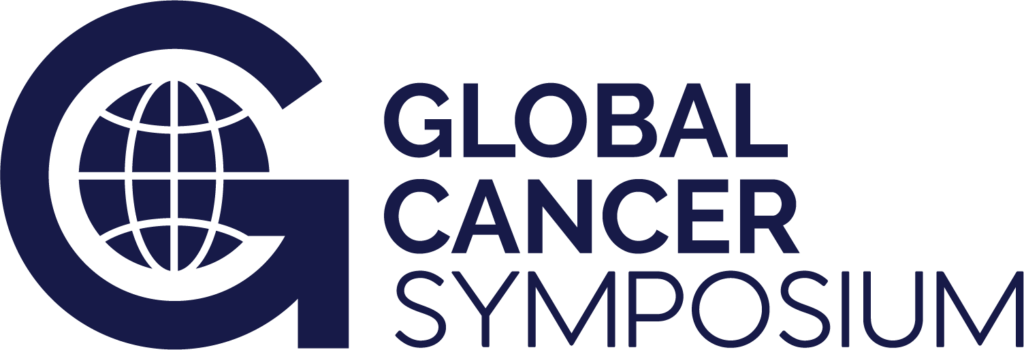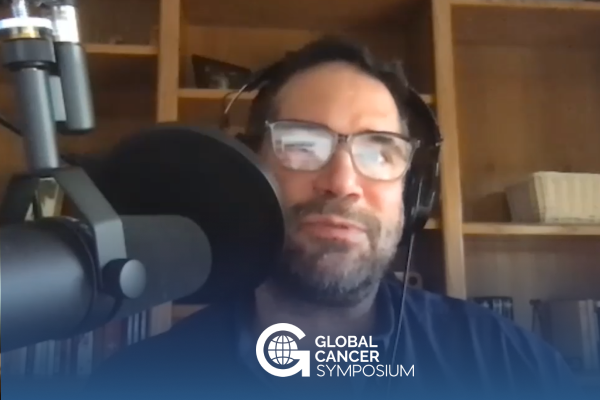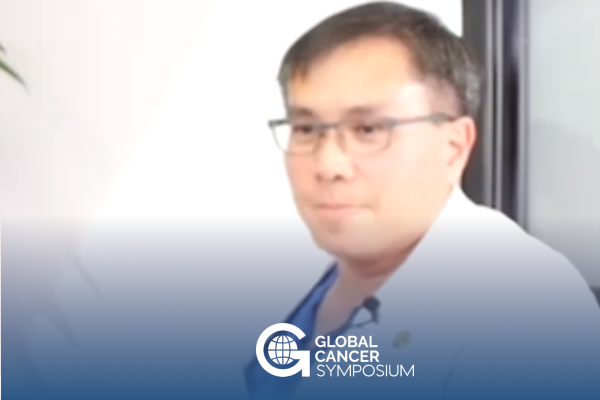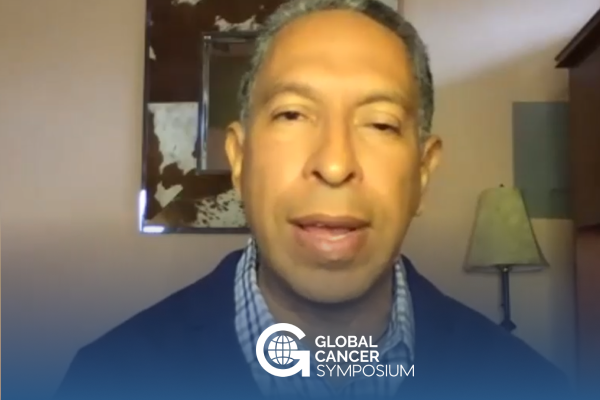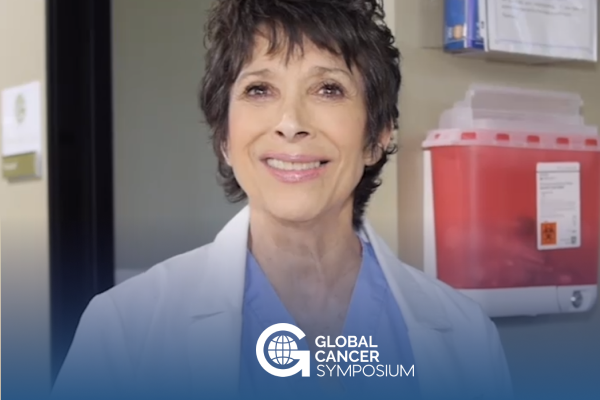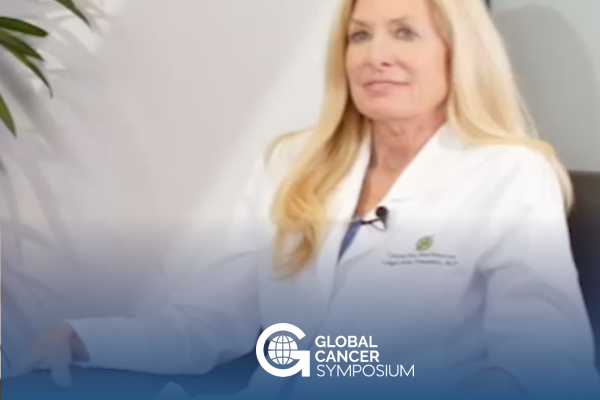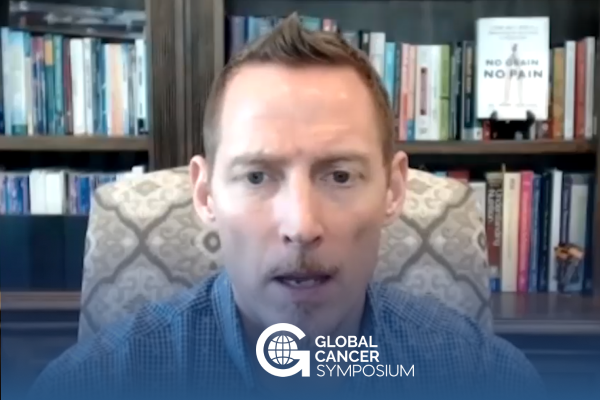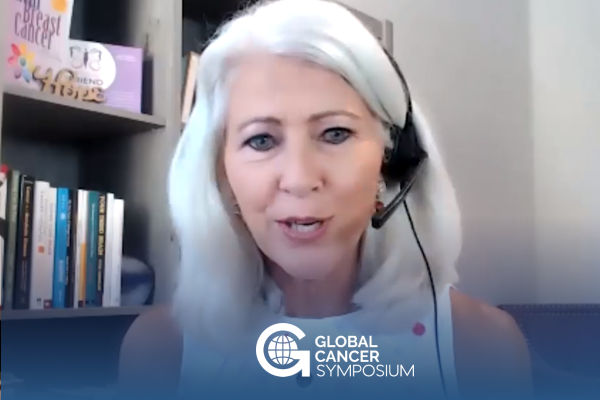Join the discussion below
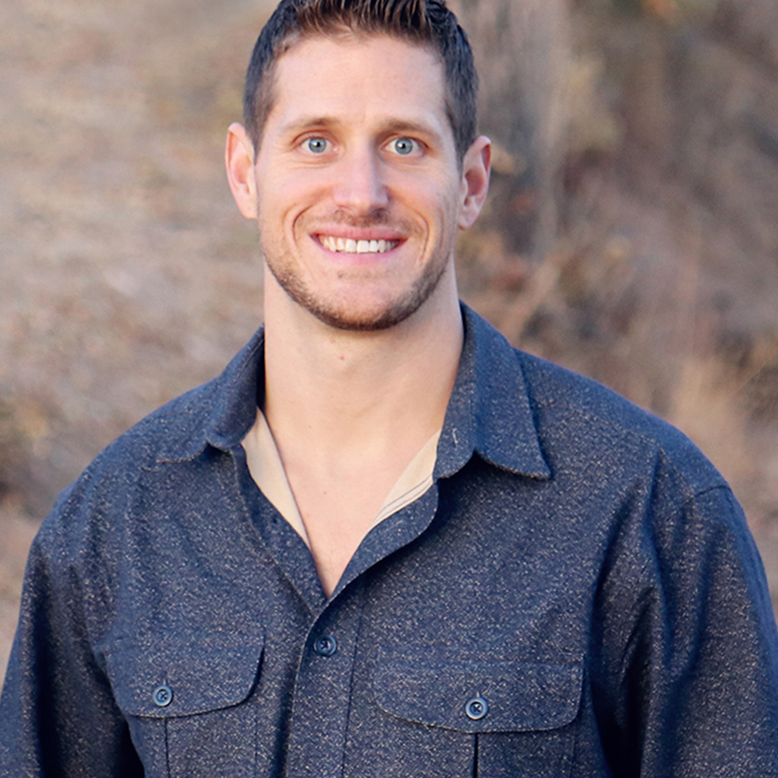
Nathan Crane is an award-winning author, inspirational speaker, plant-based athlete, event producer and 18x award-winning documentary filmmaker. Nathan is the Founder of The Panacea Community, Creator of the Global Cancer Symposium, and Director and Producer of the documentary film, Cancer; The Integrative Perspective. He is also the Director of Strategic... Read More
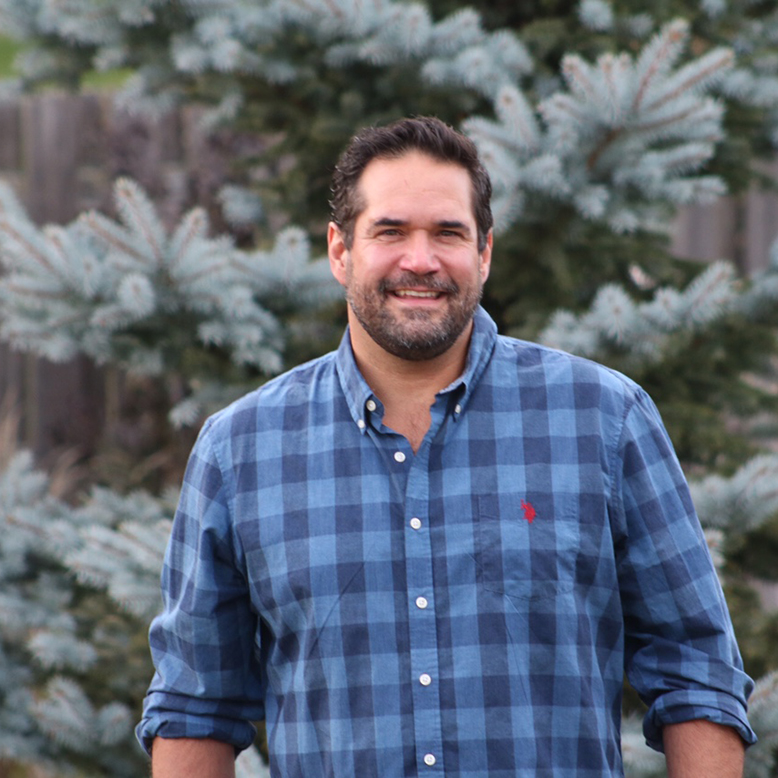
Brian Vaszily has been a prominent leader, researcher, and advocate in natural health and wellness for over 20 years. He’s the founder of the popular health destination, TheArtofAntiAging.com, whose mission is to empower those in their 30s, 40s, 50s, 60s, and beyond with the most effective evidence-based natural solutions to... Read More
- The toxins you must avoid when shopping for beauty and household products
- Why the cosmetics industry is like the wild west – forcing you to gamble with your health
- How to cleanse your home of carcinogens and other toxins with simple, natural methods
Nathan Crane
Hello everybody, and welcome to the Global Cancer Symposium 2.0. My name is Nathan Crane. I am the award-winning filmmaker of Cancer, the Integrative Perspective, as well as the director of the Health and Healing Club. You can learn more about that at healthandhealingclub.com. And today we’re talking with Brian Vaszily about the surprising household items that can cause cancer and how to spot them before it’s too late. Brian Vaszily has been a prominent leader, researcher and advocate in natural health and wellness for over 20 years. He’s the founder of the popular health destination, theartofanti-aging.com whose mission is to empower people with the most effective evidence-based natural solutions to look and feel their best and avoid and overcome disease and live longer doing it.
In the past couple of years, he’s created and hosted several highly acclaimed online summits featuring today’s top anti-aging and longevity doctors and researchers that have been heard by over 600,000 people. Brian is also the founder of puritywoods.com who are the world’s only providers of premiere quality and fully USDA certified organic anti-aging skincare products. He’s authored multiple bestsellers and appeared extensively in major media channels. I have actually interviewed Brian not too long ago about a similar subject. And I’ll tell you what, what you’re gonna learn today from him is gonna surprise you. It’s gonna shock you, but it’s also gonna empower you and give you the information you need to get rid of those items in your house that have known probable and likely carcinogens which are proven to cause cancer and what to do about it to protect yourself and your family so you have a greater chance of living longer and healthier and disease free. Brian, hey brother. Thank you so much for being here, man.
Brian Vaszily
Hey, I’m excited to be here. I’m looking forward to this conversation. Love your work, love what you’re doing in this particular event man, so here we go.
Nathan Crane
Totally. And I wanna dive right in. I mean, you’ve got a couple of decades, you know, researching, experimenting, interviewing so many of the top experts and so you have so much experience and wisdom as well as practical advice to share. So I just wanna dive in, get to the nuts and bolts for people. And so let’s start by talking about the dangers of the cosmetics that are in most people’s households. I know this is
Brian Vaszily
Yeah.
Nathan Crane
A huge focus for you. What do people need to know about their cosmetic products, their skincare products, soap, shampoos, et cetera?
Brian Vaszily
Well, great question. And I like to start by having people think about when they’re pushing that grocery carts down the aisles. When you’re in an aisle that you generally think of as food, hopefully you’re being very cautious, you know, about what you’re choosing. You’re paying close attention to the labels. You’re avoiding some of those foods that we all know, you know, should be reduced. You know, the processed foods, the high sugar foods, and you’re very wary of what you put inside your body that way. But I want everyone to try to remember the next time you are going down that grocery aisle, the grocery store, that when you’re pushing your grocery cart down those cosmetic aisles and the personal care products aisles you’re pushing it down a food aisle.
People don’t think about it like that. We tend to think of, for example, our skin as this surface that somehow in a way foreign to the rest of our body, something we can experiment on or throw stuff on and it’s not gonna make much of a difference. But I would tell you not to do that. Your skin literally eats. So when you apply anything to it, anything at all to it, if the molecules are small enough, they can penetrate and go deep into your skin, into your bloodstream and get sent, you know, through the organs throughout your body. And here’s the thing, most of these products, skincare products have a wide variety, soaps, like you said, anti-aging serums and creams and moisturizing creams and so on and so forth, they are designed to penetrate your skin.
The molecules are small enough and unfortunately they can be loaded today with all sorts of synthetic and toxic chemicals. Now let’s question briefly, why? Because I think that a lot of people have this implicit trust, Nathan, that, Oh, they would not allow that baddest stuff in those things, would they? The same way I think we had that impression, you know, with food years ago and then we learned better. Well, here’s the thing, the cosmetic industry, the personal care products industry is the most unregulated industry in the United States, major industry. And since 1938, when is the last time the FDA passed any type of substantial legislation at all in regards to the industry it basically said to them, you guys are gonna self-regulate, watch yourselves, we’re out of here. And it’s become since that time, a wild West of, you know, what they allow in these ingredients. Let me pause here, Nathan, and, you know, see if you have any questions on that front.
Nathan Crane
Oh, I think that’s crazy. I mean, you know, one, that these chemicals are allowed into our skincare products, as well as our food products. I mean, I was just talking with you offline for a moment, you know, I’m writing my next book right now about cancer and doing tons and tons of research. Not that I haven’t done tons and tons of research in the last eight years, specifically on cancer, I’m doing even more now and backing it all up with scientific data, you know, hundreds of peer reviewed studies that I’m linking to in the book. And I just did a whole section on carcinogens and the known probable, so there’s three kinds of carcinogens, right? Known, meaning we know for a fact, we have proven these cause cancer.
The probable, most likely, absolutely these are gonna cause cancer. And then the reasonable believed to be cancer causing. So pretty much in these three groups, there are a hundreds of carcinogens that are, most of them are man-made in factories and laboratories, and many of them you find in your food products and in your skincare products and in your soaps and your shampoos and they’re things that we know cause cancer and yet they’re allowed in these products. It blows my mind, but the problem is most people, as you said, don’t realize what you’re putting on your skin actually penetrates right into your body. It goes into your bloodstream, into your organs. Sometimes that can even be worse than eating the carcinogen, right? Eating the food with the toxin ’cause it’s going straight through the bloodstream. And so, yeah, what are some other things people need to know about this and what are some things people need to look out for?
Brian Vaszily
Right. Well, you explained it quite well. And, you know, let’s expand a little bit on what you mentioned. I point out that it’s actually more dangerous than eating toxins because when you put food that might contain some type of toxin into your body, it has a fighting chance of eliminating it because it goes through a series of filters inside your body, the liver, you know, being the most renowned and main filter that’s trying to bump it out.
Now, when you’re applying creams and serums and deodorants and so forth directly to your skin, as we have noted well, your skin is literally eating these chemicals and it has no such filter in place. There is no liver in place. And so indeed it does go right into the bloodstream and spread, you know, like you said around the body. Now here’s what the, you know, the big cosmetic and personal care products industry would say, yes, we know that there’s 200 plus, you know, potentially carcinogenic and indeed carcinogenic ingredients.
Some of which we use in our products, not to mention many more endocrine disrupting and other types of toxic ingredients. Sure we know that, but we studied this, and it’s in such minute quantities you’ve got nothing to worry about, you know? Because we exposed, you know, maybe in some cases, and some cases they didn’t at all, but maybe we exposed rats to this once and it didn’t really bother them in these, you know, in these proportions. Well, guess what, if I use, Nathan, deodorant one single day in my entire life, I’d be cool with that . I’d be like, all right, well, I’m only gonna use this once, you know, a year, and it’s a minute amount of, you know, of these chemicals, I can stomach that. But we don’t do that. People need to remember they are feeding their body this stuff every single day. Day after day after day, year after year after year, decade after decade, we’re putting the deodorants under our arms in very, you know, permeable place down there. We’re putting this stuff
Nathan Crane
Right.
Brian Vaszily
On our face, you know, et cetera, et cetera. And just imagine in your mind, like you said, Nathan, I would rather in many cases eat these chemicals through my mouth than do what we’re doing because there is no barrier. There’s no liver in the way. And imagine in your mind, you’re feeding yourself these chemicals on and on and on every day, and it’s slowly spreading and accumulating throughout the body. I will say this, if folks have symptoms and they’re not sure what those symptoms are from, and that could be anything, many things, at least, gastrointestinal issues, dizziness, you know, nausea, just general fatigue and on and on I can go.
But if folks have these mystery symptoms, I would strongly suggest it may well be a personal care products and the cosmetics that you’re using. So please, you know, I’ll get to the bottom line and we can expand more on this, but please view it as food because it is, and you don’t want to be feeding your body what so many of these products contain. We can take a dip into some of the chemicals, again, you noted yourself, there’s hundreds, I promise there’s literally thousands. Here’s a big statistic for everybody. There are over 1300 chemicals banned by the European union in cosmetics and personal care products. And here in the United States there’s 11, just 11 banned.
That’s the state and the power of the industry in this country, you know, behind that. You know, by some accounts the personal care and beauty industry is a $500 billion industry. But if you threw in all the chemical companies, it’s a much bigger industry even than that. They hold a lot of sway, a lot of power. I am going to tell you again, it’s as unregulated as it gets, you need to be a super educated consumer on this front in order to fight, overcome cancer, any other diseases, if, again, if
you’ve got these mystery symptoms as well. This is so much more important than most people realize, Nathan.
Nathan Crane
Yeah. I mean, you know, carcinogenic obviously means that we know it leads to cancer, but these chemicals, as you’re, you know, talking about can lead to so many other health issues, auto-immune disease and, you know, addictions and sensitivities to things and chronic fatigue and all kinds of other problems, a whole host of issues in addition to cancer. But I wanna share a study I remember from years ago, I believe it’s from 2012. They took breast tissue samples from women who had breast cancer. And I can’t remember, you know, how many women were part of this study, but they found that 99% of these tissues that were tested, cancer tumor tissues had parabens in them. And this was 99% of the women that were tested. And if you look at,
Brian Vaszily
Yeah.
Nathan Crane
You know, deodorant, for example, most deodorants have parabens in them. And you’re putting it under your armpit. Well, one of your most absorbent, you know, lymphs in your lymphatic system is right under your armpit. And, you know, the other thing is they’re parabens in lotions and in all kinds of skincare products. So, you know, you can’t say specifically, Oh, that deodorant caused your cancer. It’s almost always an accumulation and a combination
Brian Vaszily
Right.
Nathan Crane
Of multiple things, including the deodorants and skincare products and lotions and other things that have parabens and a dozen, 15, 22, 25 other toxic chemicals in them going in your body day in and day out as you were talking about.
Brian Vaszily
Yeah. Yeah, you’re right on with that study, I mean and, you know, parabens, well, thank goodness it’s received more spotlight in recent years. I will say, you know, there’s a challenge with that too, because, you know, so many boutique and big brand products alike have jumped on that almost, and they may have extracted parabens, but when you see, and I’ll get more into greenwashing and how to be cautious of this as well if you want me to, but when you see paraben-free on the
label, just, okay, you know, that’s a step, but turn the product around, never believe, you know, a company’s own claims, I’ll just say it. And I run, you know, Purity Woods, like you said, you know, which is a skincare company. And I will tell you myself, don’t just take the word, you know, that we’re saying about our product. Make sure it’s independently certified. You know, pure and clean, and turn that product around that says paraben-free and read that label carefully. You know, and if there’s these big long, you know, lists of ingredients that sound, you know, like a science project to you, well, you know, you know what to do in that case from your…
Nathan Crane
Well, that’s exactly what it is. It’s a science project,
Brian Vaszily
Yeah.
Nathan Crane
This is made
Brian Vaszily
It is always.
Nathan Crane
In laboratories, right?
Brian Vaszily
Yeah. You are right. And it’s almost, it really actually is because, like I said, literally a company can put anything in a product that they want to, it doesn’t have to be tested anywhere at all and they can stick it on a shelf and sell it and almost, almost say virtually anything they want about what it can do. And, you know, here’s the thing, of course, they’re not going to intentionally put an ingredient that has an immediate negative effect in large amounts. You know, they wanna stay in business. They wanna rock. They wanna sell their stuff. But they, earlier I had referenced, you know, it’s the mid and long-term effects. The accumulation, sometimes, you know, the effects are not even that mid before they start showing up by the way.
Ironically, a lot of these anti-aging products, you know, from big brands and boutiques alike, actually age you faster. But like fast food, Nathan, they can have some pretty good effects on the spot. So you know how you, you know, people, I’m sure everyone listening, and hopefully you’re not really eating it much, if at all anymore, but fast food at one point in your life if not now you know it felt pretty good to go and get a big mac or whatever it was. It, you know, is tasty on the spot. It was carefully designed in fact, to have the right mouth feel and everything so it’s appealing to all our basis senses, right? It’s not different at all with these products containing all these synthetic andtoxic chemicals. They are designed to produce these effects that you desire. Anti-wrinkle, not smelling, you know, deodorants and so on and so forth, not sweating up your shirts, and they will produce those effects in the short term.
You’ll get some of those benefits often, but like fast food, you’re paying a massive price for it. You have to decide if it’s worth it to get cancer, to not be able to fight effectively if you have cancer, and, you know, to suffer all these other symptoms we talk about. And I think most people, if not everyone would say, you know, it really isn’t worth it, especially when there’s so many alternatives out there. And here’s also the thing, we talked about labels, Nathan. The problem, ’cause you brought up and you’re so right about different types of carcinogens, you know, but there’s another categorization, which is indirect carcinogens. In other words, they, meaning the manufacturers of these products have no clue what the combined effect of many of these ingredients, these synthetics they’re putting in their products is.
They don’t. They may have a test to know that this ingredient and this ingredient separately are minor toxins, you know, in the short term, but there are so many indirect carcinogens produced from the combination of two or more ingredients and they don’t have a clue about, you know, what many of those are nor are they required to have a clue? There’s one that’s pretty well known, 1,4-dioxane it’s called. And you won’t see it listed on ingredients labels because they don’t intentionally add it. But it’s a byproduct of a couple of other ingredients, you know, sodium laureth sulfate being one of them. When these ingredients are in a product, and they’re in soaps, they’re in cleansers, they’re in, you know, other beauty care products, sodium laureth sulfate and such, they combine and they create 1,4-dioxane which is a horribly carcinogenic ingredient. It’s got a high hazard rating of eight in California’s environmental working group’s cosmetic database. It’s, you know, it’s on multiple lists of top carcinogens, and it’s out there, it’s out there in the stuff we’re slathering on our skin. So, you know, I just can’t stress enough how people need to be conscious of this.
Nathan Crane
Yeah. You know, it’s scary because, and it reminds me of, you know, looking at nature, for example, nature has these synergistic complimentary infusions that are designed to support the body when certain ingredients are mixed together. A great example, and there’s hundreds of examples of this, but a great one that a lot of people know today is a combination of turmeric and black pepper, or bio pairing, or, you know, there’s a lot of different names for the molecule, people are rebranding, anyway, turmeric and black pepper you mix them together, the black pepper actually increases the absorption of the benefits of the, you know, the anti-inflammatory benefits and so forth from the turmeric into your bloodstream. Synergy together creates a better result for your body in nature. The problem is in laboratories when we’re mixing chemicals, and you can do these little science experiments we do with our kids where, you know, you put a few different chemicals together and all of a sudden you get a huge explosion, you know, like a little volcano. And that’s what they’re doing in these laboratories as you’re saying, is mixing all these different chem… I mean, you can look at shampoos and soaps and skincare products and see 20 different chemicals in there. You know, that are mixed together.
Brian Vaszily
Yeah.
Nathan Crane
That as you said, they’re not studying on because they’re not required to, but the dangers of all these additional side effects that can come from mixing all these chemicals has a reverse synergistic effect. It has a dygistic effect, I don’t know if there’s a word for that, I just made it up but,
Brian Vaszily
I like it.
Nathan Crane
Yeah, where it’s gonna do the opposite. As you said, it makes this by-product which is extremely carcinogenic. So we know, and hopefully people tuning in are taking this very seriously. You know, the chemicals on your skincare, your lotions, your soaps, your shampoos, like we have to eliminate those from our lives. If we wanna live longer and healthier and more likely to reverse diseases like cancer, what are some other key toxins maybe we don’t think about that are in the house that we need to be aware of?
Brian Vaszily
Well, you’re gonna find these and other chemicals as well in your cleansers that you use to clean your home. You know, I hope folks by now have heard that as well. You’re gonna find, I mean, VOCs, volatile organic compounds, a lot of people don’t necessarily think about how the furniture and the carpeting and the flooring and the cabinet tree in their homes makes a big impact on your health and wellbeing. I mean, goodness gracious, we’re in our homes now 90% plus, you know, of the times, or in some type of indoor environment over 90% of the time. First of all, we need to switch that statistic out and try to lower that and get outside as much as we can, but we are inside the vast majority of time.
And we are surrounded, Nathan, not only are we slathering it on our skin every day, but we’re surrounded by items where we have a choice. And I understand that we don’t have unlimited funds and we can’t all make, you know, change on every single step of the way all at once. And that’s okay. First of all, the big key is to be aware of this, you know, aware of this all. Some of the changes, you know, what I love about, you know, back on the cosmetics and personal care products is it’s a relatively easy change to make, just switch to far healthier and safer alternatives. It’s not expensive. It’s a fast change that you can make today. I get it with items in the home that could be, you know, off gas in creating these VOCs, you can’t just, you know, we all don’t have the capability of ripping out all of our carpet and changing it tomorrow.
We don’t all have the capability of going and changing our kitchen cabinets, you know, to both environmentally friendly and much healthier for our own bodies types of cabinets, but it’s something to be aware of. And it’s just step by step in that direction. You know, it’s not easy and it’s different depending on who you are, what your health situation is, you know, what you’ve got going on in your life, your funds, you know, and so many different factors. But I kind of, Nathan, dumb it down to how close is it, you know, to what I’m allowing into my being.
What I mean is this, the reason that I get so passionate about the cosmetics and personal care products is because again, you are applying these, you’re feeding them directly into your body every single day. Whereas something like, you know, a printer, you know, in your office, which I highly suggest you put as far away from your desk as possible, but you’re rolling around that sometimes. So if you have to prioritize my point is this, you know, how much are you putting this into your body? You know, the air you breathe inside your home is another crucial, crucial area Nathan, to focus on for this very reason, because you’re breathing in constantly. And if you’re constantly breathing in highly toxic air, which the air inside homes can be up top, if not more, a hundred times more polluted than outside, it’s another top area to focus on. If you’re only occasionally exposed to a printer, or you’re only occasionally exposed to that room in the house with carpeting, it’s important, but I would prioritize it a bit lower if you’ve got to rank things. I don’t know, does that make sense what I’m saying?
Nathan Crane
It makes perfect sense.
Brian Vaszily
Yeah.
Nathan Crane
You know, it’s reminded me of a couple of things I wanna share. One is there’s a series of talks and presentations we’re doing as part of this symposium, all about detoxing and cleansing and fasting, getting these toxins out of your body. Safe ways to do it, effective ways to do it, ways that support your healing and longevity. I wanna encourage people, go listen to those interviews, those presentations
Brian Vaszily
Yeah.
Nathan Crane
After this one, because they’re gonna support you in getting these toxins out of your body. The second thing I wanna share is about the air quality you just mentioned. So, as you said, you know, the studies have shown inside our houses we are exposed significantly to more toxins and are constantly breathing in these chemicals that are off gassing from all these, you know, chemically made products and carpets and, you know, furniture and so forth. And if you’re not spending a lot of time outside breathing fresh air, or if you’re in a city where that air is also very polluted, you’re constantly bombarding your body with all of these toxins.
And then if you’re putting, you know, toxins on your skin and in your food, et cetera, your body is just basically a toxic cesspool. So you gotta get those toxins out. One of the things that my wife’s been doing here in the house, we’ve always had plants in the house, but I recently saw a study from NASA in 1989, that to clean the air in the average home, if you put a plant, one to two plants per hundred square feet. So let’s say an average house might be around 1800 square feet, it’s about 15 to 18 plants. So a few plants in each room, right? That will purify your air better than any air purifiers you can buy. So these are just plants, a little bit of soil, some water, they’re gonna help clean your air, which is hugely effective, very cheap and affordable.
Brian Vaszily
Yeah.
Nathan Crane
And you’re getting a lot of other benefits from living plants in your home in addition to cleaning the air. One of the best ones we found is Aloe vera actually. A single Aloe vera plant, I can’t remember the number at the moment, but they’ve found a single aloe vera plant can actually purify X amount of times more than I think like four or six or 12 air purifiers in your home, a single aloe vera plant. Don’t fill your house with only aloe vera plants. Have diversity, right? It just like nature it’s all about diversity. So it’s just one thing I wanna share with people. It’s really, really profound having these plants in your home purifying the air, getting the toxins out of your products. And the other thing is using products that are only organically certified, that have no toxins, that have no chemicals.
Speaking of, you know, my wife’s been using your Purity Woods, like age defying dream cream, which, you know, we both love. The ingredients that are in it it’s all organic. It’s all pure. I’ve only been using organic, you know, products for, geez, well over 10, 12 years now, our soaps and shampoos are a hundred percent organic. They’re simple castile oil-based, you know, they’re just essential oils and so forth. A hundred percent organic plant-based toothpaste, no sodium laureth sulfate. As you were talking about greenwashing, when we were getting into this, you know, years ago, we’d buy these natural healthy products and then later find out they’ve got these hidden chemicals in them, you know? And so it’s like, geez, you just have to be diligent about it. You to say, look, no chemicals whatsoever ’cause they sneak them in. It’s gotta be pure plants. You understand what the ingredient is, it’s very clear, it’s not some factory chemical made, you know, in a laboratory. So, you know, just a few key things to look out for. And I know your skincare line is doing exactly that. I also use your hand sanitizer ’cause it’s just organic basically, alcohol-based, you know, hand sanitizer. It doesn’t have a bunch of the chemicals like most of those hand sanitizers have as well.
Brian Vaszily
Yeah. Well, I appreciate that. Yeah, let’s talk briefly about greenwashing. I’ll just say, again, never believe what’s on the front of the label. Never quite believe what’s in a marketing copy. When you see terms like, Hey, it’s organic, it’s, wild crafted, it’s natural, you know, it’s paraben-free. Shut down almost to that and turn that product around and look at the ingredient label if you’re there or, you know, make sure they post what the ingredient label is if it’s online. Clearly, if they’re hiding, if it’s hard to get to, there’s a reason. There’s also a number of certifications, you know, that you wanna watch closely for.
From my experience and, you know, certainly researched the heck out of this, in this country of the United States, you wanna make sure, like Nathan said, it’s USDA certified organic. That means it was independent of the company, and that’s a key point here, strictly verified, you know, to be organic. And that doesn’t just mean it doesn’t have toxic ingredients in the product. That also means the source ingredients that are in the product were raised on farms organically. So no pesticides, no herbicides and such. And that’s another important point. Back on the greenwashing, if they say organic, it’s unregulated.
That means they can have one single organic ingredient in there amidst 50, 70, you know, whatever synthetics. They can still call it organic. They can scream it to the moon and a lot of people will fall for it, you know, Oh, it’s organic, I gotta get that. No, turn it around or make sure it has USDA certified organic, which also includes non-GMO as part of its requirement, which is, you know, another important point. So thanks for bringing up Purity Woods products, the age defying dream cream you mentioned, and indeed this is a really, really powerful anti-aging cream that’s USDA certified organic, very hard to achieve that I can tell you from experience. I won’t go, you know, too deep into what’s in it, but I will point out a couple of key ingredients. Now probably the superstar of superstars in that is red maple leaf extract and two other maple leaf extracts. And that might be news to a lot of people, you know, because they probably, in most cases, never heard of that. You know, this powerful extract coming from maple leaf.
So real quick, I’ll just say a 2018 study which received a lot of fanfare showed that there’s a special compounds inside of red maple leaf extracts that blocks elastase, which is a, it basically causes the breakdown of elastin in skin especially as we get older. This is a very special compound inside of these products that have other excellent compounds as well that can reverse that. We’ve seen remarkable benefits. I’ve been involved in many product launches over the years Nathan, and what you and your wife are experiencing with it is it’s kind of become the rule. It’s the most remarkable product I’ve ever been involved in. So thanks for bringing that one up. There are other ingredients in it that are superstars as well. You brought up aloe leaf. So it’s, you know, its organic aloe leaf juice is in it. And what a great plant that is by the way, I can talk probably here for an hour about all the benefits of aloe in many different ways. You’re right, it cleans the air. It’s also exceptional, you know, for your skin in any number of ways. I can go on with other ingredients. Let me jump real quick to the other one you mentioned. You know, with all going on in the world with the pandemic, et cetera, you know, it is important as we’ve been told to sanitize our hands out there, but you’re right, typical hand sanitizer is downright dangerous.
Now I’m not even referring to the fact that, you know, there was a rash of methane infested hand sanitizers put on the market, you know, and there was a lot of news around that, but they’re loaded, these typical sanitizers with other highly, well, flat out bad chemicals, let’s just be honest about it. So thank you for bringing that up because you don’t need to do that. Granted, it’s a harder process. It’s a little more, you know, painstaking of a process to create a sanitizer that’s USDA certified organic, which it is in our case, but it makes all the difference, especially because again, you’re rubbing this stuff directly into your skin as we talked about earlier, feeding it to your body. So, you know, it’s just important and thanks for bringing this up Nathan.
Yeah, absolutely. And I love the work you do and the fact that you’ve, you know, made this your mission to help bring these good quality, you know, products and information to the world. I’m all about that, support that a hundred percent, encourage people to, you know, check out puritywoods.com, try those a hundred percent organic certified products, you know, replace all your skincare products, your shampoos, your soaps, your lotions, your deodorants, with organic, just purely nature based ingredients. Again, you have to listen to what Brian said. You can’t believe what’s on the front of these bottles. I mean, read, Oh, all natural and pure and clean and, you know, and they show a nice grapefruit and, and they show a mango, a grapefruit seed and mango, and you read the back and it’s like, that’s 1% of the ingredients ’cause it’s like the bottom and the top percent is, you know, water, sodium laureth sulfate, a list of 18 different chemicals and then some grape seed and stuff, you know, mango in there, and so. Yeah.
Nathan Crane
You’re getting, you know, 80% water, 18% chemicals and 2% good stuff, right? So really pay attention,
Brian Vaszily
Yeah.
Nathan Crane
Get those chemicals out of your house, out of your body, out of your products, you’re gonna see benefits long-term, you know. You may go through some detoxing when you start getting all these chemicals out of your body. That’s what I want you to listen to detox and fasting and cleansing talks so you can do it safely and effectively. But once these toxins are out of your body, you have such a stronger fighting chance for your immune system, your endocrine system, your gut health, all these different aspects that help you stay healthy, live longer and disease free.
You’re gonna have such a better fighting chance to reduce your cancer risk, even potentially, you know, prevent cancer and even potentially reverse cancers. So as we wrap up here, Brian, one, you’ve already shared a ton of great information. I think it’s, you know, we’ve made it really practical for people which is my goal with every interview on the symposium. People can walk away with actual things to start doing today to improve their health. What other, you know, even if it’s just a couple, what are some of your other top longevity anti-aging tips that you do with you and your own family or that you’d love to share for people who are looking to live longer and healthier?
Brian Vaszily
Yeah. Great question. And, you know, I’ve got a list of about 10 to 12 running through my mind right now. But let me close out on this, it can seem complicated, it can seem overwhelming, you know, hearing all of this for folks. And, you know, like I said earlier, I try to say, first of all, if you’re getting stressed about doing anything, any of these steps, you know, that could be worse than the change you’re making it. So just list it out, whatever resonates with you, you know, and you’re being, you’re saying, yes, that makes sense and it is pretty easy, start there, start with the low-hanging fruit. Again, these changes you gonna make with cosmetics and personal care products are relatively easy.
You know, it’s important as heck Nathan to get proper exercise and move as we’ve heard. For some people that’s a little more challenging to do. So take that step by step. But the point is with personal care products it’s an easy change to make. So why not? You know, next step, you know, in your pantry, hopefully you’ve already done this, but some of those changes are quite easy to make. Clear it off your shelf, keep it out of the house and put the, you know, healthier things on your shelf as well. But let me pull back, you know, the camera to a wider scope. It can all seem complicated and overwhelming, but I like to, you know, including to my family, note that it’s really just about your being, your body, your being is a sacred space. And it all comes down to just constantly ask yourself, what am I allowing inside my being?
Now, there are some things, you can’t keep every single toxin out, which is why it’s important as can be to detox, which Nathan’s material is unbelievably great for. But that said, you can greatly take steps, step-by-step to reduce what you’re allowing inside your being. Nathan, when I adjusted my thinking and I really started doing that, what am I allowing inside my being? And what should I keep out? It really just made it much easier and clear to me, you know, in a calm way, you know, just to keep taking steps in the direction of not allowing the toxic stuff in and allowing the stuff, like this discussion we’re having, like this event you’re putting on, allowing those sorts of things in that can make us feel better and therefore live longer.
Last thing I’ll say on this, it doesn’t only go for physical goods, for cosmetics, for food, for furniture, for flooring. It doesn’t have, certainly for the air which is a physical thing, but it’s not only about that, perhaps equal if not even superior to that are, what toxic things are you allowing inside your being that are more, I guess I’ll say ethereal in nature. Are you around toxic people? Are you allowing toxic media into your head? Again, like fast food, we can tend to watch, Nathan, some programs on TV, perhaps the evening news that feel important, that feel good to us, or these, you know, certain TV shows that make us feel riveted, but that doesn’t mean they’re good for us. And in fact, they can really drag us down. And by dragging us down emotionally, they are dragging down our physical health. Just be conscious of how these things make you feel because that’s the key of keys truly to live long and well. Is questioning and being very vigilant about what you are allowing inside your being.
Nathan Crane
I love that. It’s a great place to end Brian. I mean, I think many of us wanna live longer, but at the end of the day, it’s the quality of life. You said live long and well,
Brian Vaszily
Yeah.
Nathan Crane
I know people that their lives are extended five, 10, 15, even 20 years through modern medicine. The problem is that quality of life is so degraded, it’s so depleted, there’s low energy, they don’t feel good. As you said, they’re just, you know, getting by the mundane day to day with pain and with chronic disease. And like, that’s not the quality of life we’re looking for. So it’s all these things that you shared, everything we’re sharing in all these interviews that can really help and support people to live a longer, better quality of life. So, Brian, thank you so much for, you know, just sharing all your great experience, your tips, your advice here with everyone. Thank you for, you know, the great work you’ve put together with the art of anti-aging.com, I encourage people tocheck that out, and the great products you’ve put together through Purity Woods, and yeah, man, just appreciate you for continuing to share your great knowledge and wisdom here.
Brian Vaszily
Oh, well, thank you, and keep doing what you’re doing in the world. Nathan, you’re making a huge and positive difference. So I appreciate you having me on here.
Nathan Crane
Absolutely brother, my pleasure. And I wanna thank everyone for tuning in to the Global Cancer Symposium. Make sure to share this with anyone you know who needs this life-changing information and make sure to visit puritywoods.com. You can learn more about Brian’s leading edge organic anti-aging products. Also I encourage you to visit healthandhealingclub.com where you can join the global membership dedicated to helping you get and stay healthy. Again, I’m Nathan Crane, I wish you ultimate health and happiness. Take care.
Downloads
